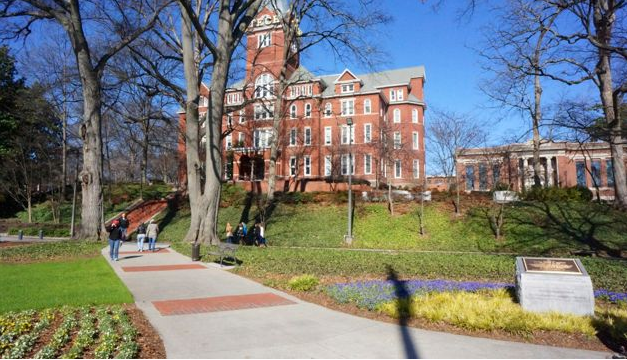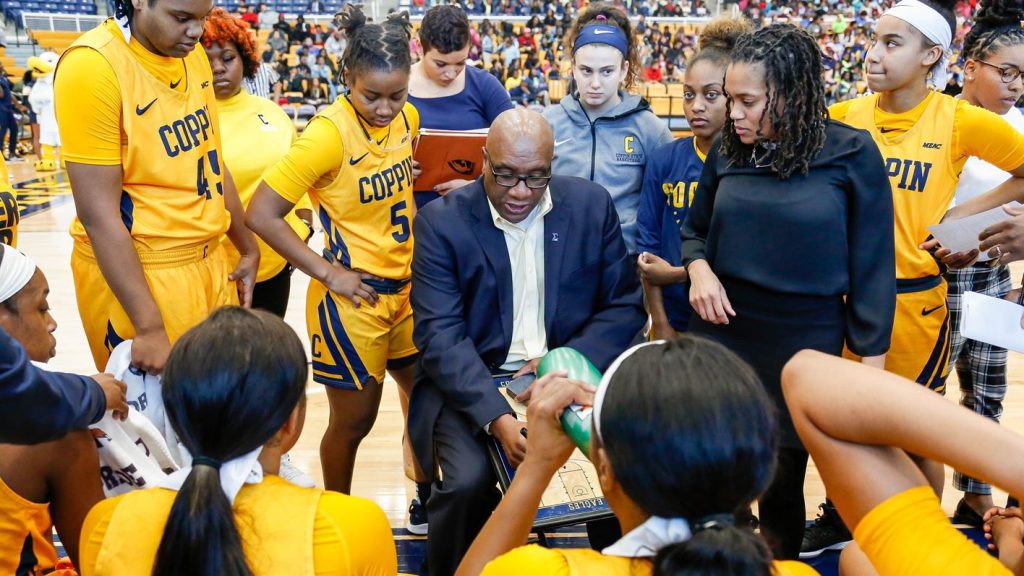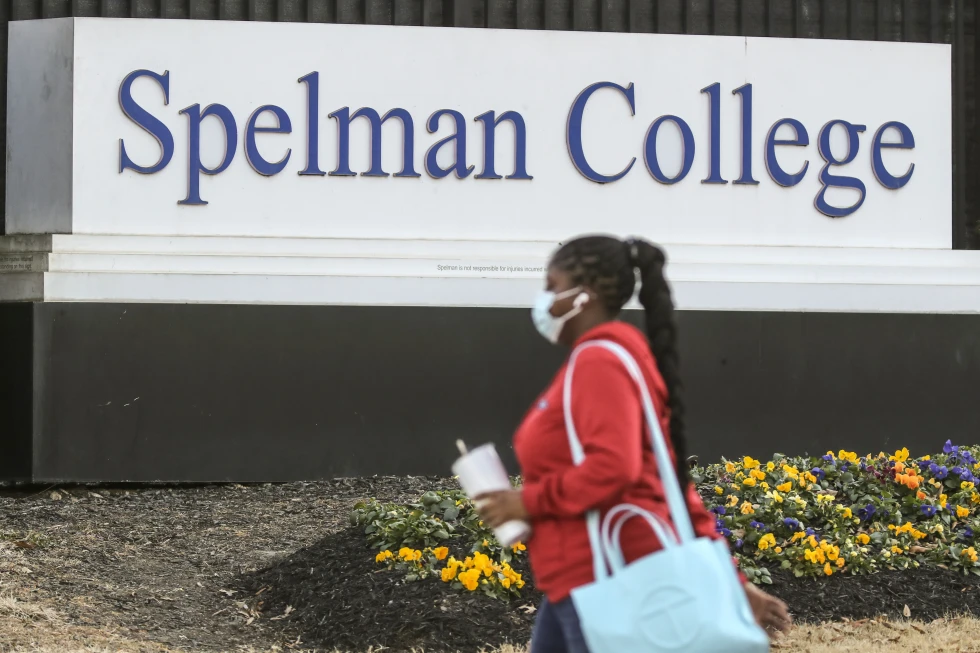The recent announcement of a $100 million donation to Atlanta’s Spelman College by billionaire couple Ronda Stryker and William Johnston has garnered widespread attention and praise.
This generous contribution is not only a significant milestone for the esteemed women’s college but also marks the largest-ever single donation to a historically Black college or university.
Ronda Stryker, the billionaire granddaughter of the founder of Stryker Corp., a renowned medical device maker, and her husband William Johnston, the chairman of money management firm Greenleaf Trust, have demonstrated an unwavering commitment to advancing education and empowering future generations.
Their philanthropic gesture is a testament to their dedication to creating positive change and fostering opportunities for underrepresented communities.
Spelman College has outlined its plans for the allocation of the donation, with $75 million earmarked for the endowment of scholarships.
This substantial investment in financial aid will undoubtedly alleviate the burden of tuition costs for numerous students and enable them to pursue their academic aspirations without undue financial strain.
Additionally, the remaining funds will be utilized for various initiatives, including the development of an academic focus on public policy and democracy, as well as the enhancement of student housing facilities, addressing a longstanding concern among the Spelman community.
The significance of this transformative gift extends beyond its monetary value, as it symbolizes a profound endorsement of Spelman College’s mission and impact.
Trustee Lovette Russell aptly described the donation as “transformational” for the institution, emphasizing the far-reaching implications of this unprecedented act of generosity.
In a broader context, the substantial contribution from Ronda Stryker and William Johnston serves as a poignant reminder of the pivotal role that philanthropy plays in bolstering educational institutions and fostering social progress.
By investing in the future of Spelman College, the couple has exemplified the potential for individuals of means to effect meaningful change and champion causes that resonate with their values.
Moreover, the historic nature of this donation underscores the importance of recognizing and supporting historically Black colleges and universities, which have long been pillars of academic excellence and community empowerment.
It is a testament to the enduring legacy and impact of these institutions, as well as a call to action for continued investment and advocacy in support of their vital mission.
As we reflect on the profound impact of this monumental donation, we are reminded of the immense potential for philanthropy to drive positive change and create opportunities for generations to come.
The generosity of Ronda Stryker and William Johnston stands as a shining example of the transformative power of giving, inspiring others to similarly contribute to the advancement of education and the empowerment of marginalized communities.
In conclusion, the $100 million donation to Spelman College represents a watershed moment in the history of historically Black colleges and universities, signaling a new era of support and recognition for these esteemed institutions.
The enduring legacy of this transformative gift will undoubtedly reverberate across generations, leaving an indelible mark on the landscape of higher education and serving as a testament to the profound impact of philanthropy.
Historically Black Colleges and Universities (HBCUs) have long been known for their significant contributions to higher education, particularly in providing opportunities for Black students to pursue academic excellence in a supportive and inclusive environment.
However, one persistent challenge that has hindered the growth and development of HBCUs is their comparatively small endowments when compared to other institutions of higher learning.
Despite this financial disparity, recent events, such as the racial justice protests following the tragic killing of George Floyd in Minnesota, have brought about a notable increase in donations to HBCUs, signaling a potential shift in the level of support these institutions receive.
One such example is Spelman College, a historically Black women’s college located in Atlanta, Georgia, which has experienced a positive trend in funding.
With approximately 2,400 students, Spelman has managed to maintain relatively strong financial support, reporting an endowment of $571 million in 2021.
This achievement is particularly noteworthy given the broader context of underinvestment in HBCUs, as highlighted by Spelman College President Helene Gayle.
In a statement to CBS News, Gayle emphasized the significance of increased investment in HBCUs, underscoring the long-standing need for these institutions to receive greater financial backing.
The recent donation announcement made by Spelman College further underscores the growing support for HBCUs.

The donation, which was revealed during a broadcast on CBS, serves as a testament to the belief that investing in HBCUs is not only important but also worthwhile.
This sentiment is echoed by the actions of individuals such as the trustees of Spelman College, including Stryker and Johnston, who have demonstrated their commitment to the institution through substantial financial contributions.
Their previous donations in 2018 and 2011, totaling $30 million and $100 million respectively, have significantly bolstered the college’s resources and further solidified its position as a leading institution in higher education.
It is important to recognize that the significance of these donations extends beyond their monetary value. They symbolize a broader recognition of the pivotal role that HBCUs play in shaping the academic and professional trajectories of countless students, particularly those from underrepresented and marginalized communities.
By investing in HBCUs, donors and supporters are not only providing immediate financial assistance but also contributing to the long-term sustainability and growth of these vital institutions.
Furthermore, the impact of increased donations to HBCUs goes beyond individual colleges and universities.
It has the potential to uplift entire communities, as these institutions serve as hubs of academic, cultural, and social empowerment.
By strengthening HBCUs, donors are actively investing in the advancement of education, research, and innovation within Black communities, thereby fostering positive societal change and progress.
The recent surge in support for HBCUs also serves as a reminder of the ongoing need to address systemic disparities in higher education funding.
While the increased donations are undoubtedly a positive development, they also shed light on the historical underinvestment in HBCUs and the persistent challenges they face in securing adequate resources.
It is imperative for stakeholders in higher education, government, and philanthropy to continue advocating for equitable funding and support for HBCUs, ensuring that these institutions have the necessary resources to thrive and fulfill their vital mission.
In conclusion, the recent increase in donations to HBCUs, exemplified by the significant support received by Spelman College, marks a pivotal moment in the ongoing effort to strengthen and empower these institutions.
The generosity of donors and the commitment of supporters underscore the enduring value and potential of HBCUs, while also highlighting the imperative of addressing historical underinvestment.
As we celebrate the positive momentum in funding for HBCUs, it is essential to maintain this momentum and work towards a future where these institutions receive the equitable support they deserve.
By doing so, we can collectively contribute to a more inclusive, diverse, and thriving landscape in higher education, benefiting students, communities, and society as a whole.
In this context, the recent surge in donations to HBCUs, including the substantial support received by Spelman College, represents a significant turning point in the ongoing effort to strengthen and empower these institutions.
The generosity of donors and the commitment of supporters underscore the enduring value and potential of HBCUs, while also highlighting the imperative of addressing historical underinvestment.
As we celebrate the positive momentum in funding for HBCUs, it is essential to maintain this momentum and work towards a future where these institutions receive the equitable support they deserve.
By doing so, we can collectively contribute to a more inclusive, diverse, and thriving landscape in higher education, benefiting students, communities, and society as a whole.
The recent surge in major donations to historically Black colleges and universities (HBCUs) marks a significant turning point in the efforts to bolster the long-term financial stability of these institutions.
The generous contributions from prominent philanthropists and organizations reflect a growing recognition of the critical role that HBCUs play in providing quality education and opportunities for Black students.
One of the most notable donations in this wave of philanthropy is the $100 million gift from the Lilly Endowment Inc. to the United Negro College Fund (UNCF), which aims to establish a pooled endowment for the 37 HBCUs within its membership, including the esteemed Spelman College.
This substantial endowment is envisioned as a means to fortify the financial foundations of these institutions, ensuring their continued ability to fulfill their vital educational missions.
Furthermore, the UNCF is actively working to raise a total of $370 million for the shared endowment, underscoring the collective commitment to securing the future of HBCUs.
The concerted effort to mobilize resources for this cause reflects a deep understanding of the significance of these institutions in fostering academic excellence and empowering the next generation of Black leaders.
Notably, the recent surge in philanthropic support for HBCUs also encompasses other significant contributions.
For instance, the remarkable $560 million donation from MacKenzie Scott in 2020 to 22 Black colleges, the UNCF, and the Thurgood Marshall College Fund stands as a testament to the transformative impact of strategic philanthropy.
Similarly, the generous $120 million gift from Netflix founder Reed Hastings and his wife, Patty Quillin, to the UNCF, Spelman, and Morehouse College further underscores the growing momentum behind supporting HBCUs.
The commitment to HBCUs is also evident in the pledge of $100 million for student aid at the four historically Black medical schools by former New York mayor and entrepreneur Michael Bloomberg.
This pledge reflects a recognition of the critical role that HBCUs play in addressing the racial disparities in the medical field and nurturing the next generation of diverse healthcare professionals.
The collective impact of these significant donations extends far beyond the immediate financial support. It signifies a broader acknowledgment of the invaluable contributions of HBCUs to the educational landscape and the imperative of ensuring their enduring strength and vitality.
By investing in HBCUs, philanthropists and organizations are not only providing crucial resources but also affirming the inherent worth and potential of these institutions to shape the future of education and society.

In conclusion, the recent surge in major donations to HBCUs, including the noteworthy contributions to Spelman College and other institutions, represents a pivotal moment in the ongoing efforts to fortify the financial foundations of these vital educational establishments.
The generosity of philanthropists and organizations underscores a growing recognition of the pivotal role that HBCUs play in empowering Black students and advancing academic excellence.
As these transformative contributions continue to pour in, they serve as a testament to the enduring significance of HBCUs and the collective commitment to securing their long-term prosperity.
